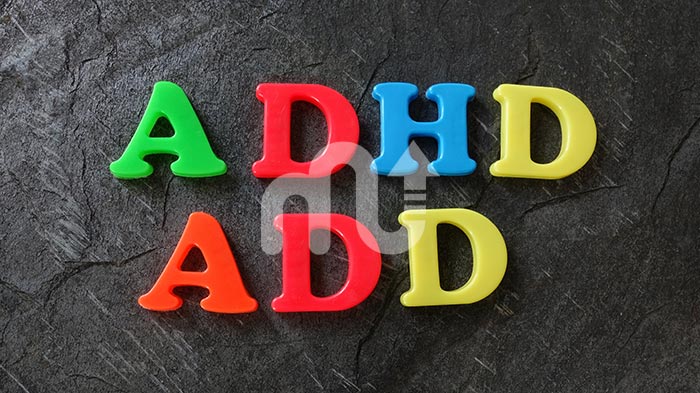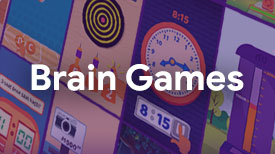ADHD vs ADD: What's the Difference? Symptoms, Tests, Treatments
According to the Centers for Disease Control and Prevention (CDC), there are 6.4 million diagnosed children only in the United States.
Both ADD and ADHD are disorders that can cause learning difficulties according to the symptoms. To prevent the negative effects of the disorder and to boost attention, scientific brain games like MentalUP Attention Exercises would be beneficial.
What is the Difference Between ADD and ADHD?
Actually ADD is an old term which was used to describe ADHD for years. As the diagnosis of symptoms expanded and became more specific, ADD remained insufficient to describe this condition. In other words, the difference between ADD and ADHD is in their symptoms.
Now let's review the expanded general symptoms of ADHD:
- Inattention
- Hyperactivity
- Impulsivity
People with ADHD often have all of these three symptoms. However, this is not imperative for the ADHD diagnosis. Because in some people, only inattention symptoms like focusing problems may appear. The difference is that these people were diagnosed with ADD in the past but today they are all gathered under the diagnosis of ADHD.
In other words, ADD is a kind of ADHD but without hyperactivity. So let’s compare ADD and ADHD.
What is the new classification of ADD vs. ADHD?
As already mentioned, after hyperactivity was added to the symptoms, a broader umbrella term was needed to describe this disorder. ADHD, the Attention Deficit Hyperactivity Disorder concept, was thus implemented in this way. Ultimately , ADD became a subtype of ADHD.
Parenting a child with ADHD is not easy.
However, doing daily mental exercises like MentalUP scientific and fun brain games can help your children improve their concentration, attention span and strengthen other cognitive skills.
MentalUP is designed by academicians and pedagogues especially for kids to support their mental improvement.
Three Types Of ADHD
The three types of ADHD are distinguished depending on the symptoms encountered in daily life. There are different diagnostic and treatment methods for each type of ADHD with different symptoms.
- Inattentive ADHD (closest to ADD)
- Hyperactive-Impulsive ADHD
- Combined Subtype of ADHD
You can also find more detailed information about ADHD and its types, which we describe below, from our “What Are the Types of ADHD” blog post. Now let’s compare ADD and ADHD to make the difference more clear.
ADHD vs. ADD
 |
 |
| ADHD | ADD |
| Attention Deficit Hyperactivity Disorder | Attention Deficit Disorder |
| - Predominantly Inattentive ADHD
- Hyperactive-Impulsive ADHD -Combined ADHD |
Predominantly Inattentive ADHD |
| - Hyperactive
- Energetic - Active |
- Not Hyperactive
- Shy - Calm - Reserved |
| - Medication
- Behavioral therapy - Family therapy - Appropriate school placement |
- Medication
- Educational therapy - Psychological therapy |
Symptoms and Ways to Diagnose and Treat ADD/ADHD
Having symptoms of hyperactivity disorder doesn’t mean that a child or an adult has ADHD/ADD. Parents should keep in mind that even if they observe symptoms like impulsivity, distractibility, and hyperactivity in their children, only a mental health professional has the competence to diagnose it.
Some of the behavioral symptoms your doctor will observe are listed below:
- Impulsiveness
- Disorganization and problems prioritizing
- Poor time management skills
- Problems focusing on a task
- Trouble multitasking
- Excessive activity or restlessness
- Poor planning
- Low frustration tolerance
- Frequent mood swings
- Problems following through and completing tasks
- Hot temper
- Trouble coping with stress
ADD and ADHD are both neurobiologically developmental disabilities. They affect the same part of the brain which regulates attention, behavior, and focus.
ADD and ADHD are conditions that need to be treated under doctor control. Both disorders are treated similarly with the help of a combination of medication and cognitive-behavioral therapies that the doctor deems appropriate after the diagnosis.
If you think you are observing symptoms of ADHD in your child and want to have a clue before going to a specialist or beginning any treatment, you can look at ADHD questions and take our quiz below:
The Ultimate ADD/ADHD Test
By applying an ADHD test to yourself or your child, you can determine whether you need to consult a psychologist or psychiatrist for the diagnosis and treatment of attention deficit disorder (ADD) or attention deficit hyperactivity disorder (ADHD).
Remember that this is just a screening test. Diagnosis and treatment can only be performed by a psychologist or psychiatrist.
Check the box that describes how you or your kid feels about the situations in the questions in the last 6 months.
| 1
Never |
2
Rarely |
3
Sometimes |
4
Often |
5
Very Often |
|
|---|---|---|---|---|---|
| How often do you make careless mistakes or fail to give close attention to details? | |||||
| How often do you have difficulty in wrapping up the final details after finishing the main challenging part? | |||||
| How often do you have difficulties remembering due dates or appointments? | |||||
| How often do you avoid or delay tasks that need full concentration? | |||||
| How often do you feel overly active? | |||||
| How often do you have difficulties sustaining attention in tasks or leisure activities? | |||||
| How often do you have difficulty organizing tasks? | |||||
| How often do you start squirming your feet when you have to sit still for a long time? | |||||
| How often do you lose things that are necessary? | |||||
| How often do you interrupt the activities or conversations of others? |
If your answers are mostly 3, 4 or 5, please first consider if the subject shows these characteristics more often than their peers. If the answer is “Yes” then it would be better to see a psychologist or psychiatrist.
Keep in mind that not all people who demonstrate symptoms of ADD or ADHD mean that they have one of these disorders. Still, it can be useful to check out the best ADHD apps to cop with some symptoms. 🔍
Regardless of whether you have ADD, ADHD, MentalUP offers 150+ brain games to improve attention, logic, memory and more. That's why it's beneficial for everyone who wants to maximize their skills! 🚀✨
Do daily scientific and personalized exercises, increase your brain's attention, focus power and quality of life! 🥰




.jpg)

